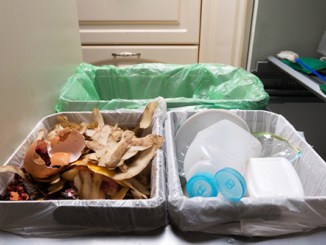
Steeped in family togetherness and traditional foods among the Jewish community, Passover celebrates the Israelites' liberation from slavery in ancient Egypt. Seder dinner occurs on the evening of the 15th day of Nisan in the Hebrew calendar, which occurs in March or April, depending on the year. Family and friends gather together at the ritual meal of Passover Seder to retell the story as written in the Jewish text called the Haggadah.
Because the Israelites did not have time for their bread to rise when they were freed from Egyptian slavery, all food deemed "hametz," or prepared with five species of grain (wheat, barley, oats, spelt and rye) that has been allowed to leaven, is prohibited.
Amid the biblical food restrictions, notable foods are required during the Passover Seder. Strategically placed on the table or on the "Seder plate," these foods have symbolic meaning, which help members of the Seder relive the story of the Exodus. Representative Seder foods include:
- The roasted shankbone, za'roah, symbolizes the lamb that was sacrificed. It is a remembrance of God's outstretched hand that redeemed the Israelites from Egyptian slavery. After the telling of the Passover story, the shankbone is divided into small pieces so each guest of the Seder can take a taste.
- The roasted egg, beitzah, represents the Passover offering and continued existence. Depending on different customs, it is consumed after the telling of the Passover story.
- Maror, bitter herbs such as horseradish, are meant to serve as a reminder of the enslavement of the Israelites. There are designated times throughout the Seder when these foods are consumed.
- The charoset symbolizes the brick and mortar the Israelites created. It is a mixture of apples, nuts, sweet wine, cinnamon and sugar among the Ashkenazi Jewry; or dates, nuts and sweet wine, according to the Sephardic tradition. Charoset serves as a dip for the bitter herbs.
- Karpas, greens such as parsley, symbolize spring, the time of year when Passover takes place. At a specific point during the reading of the Haggadah, karpas is dipped in salt water, reminiscent of tears the Hebrews shed while enslaved in Egypt.
- Red wine is consumed as a symbol of redemption.
- The matzo is arguably the most symbolic food eaten during the Seder. It represents the unleavened bread the Israelites baked since dough did not have time to ferment. Many types of matzo are available. From egg, spelt and whole-wheat to gluten-free oat varieties, matzo comes in all shapes and sizes to please any palate. It is customary at the Seder to consume matzo shmurah, which is supervised from the time of wheat harvest (as opposed to the time it is ground, which is the case for the other type of matzo) to ensure it never comes in contact with water or moisture. Its grain-like taste, sand paper texture and a hard crunch are its signature traits. Throughout the meal, matzot (plural of matzo) grace the Seder plate and are blessed, referenced in the Haggadah story and made into sandwiches with the charoset and maror.
Main Event
Toward the end of the Seder, the main meal is served, typically at a late hour. The meal consists of traditional meat-based dishes and other vegetable dishes such as roasted string beans. Depending on different customs, rice or potatoes may be included in the meal. It may come as a surprise that, although many ingredients to make cakes and other desserts are prohibited, such as flour, bakers get creative and whip up delectable cakes and cookies from ingredients such as almond meal, cake meal and potato starch.
Nutrition and the Seder
Some simple tips can help navigate the overwhelming evening, such as eating a protein and fiber-filled snack before the Seder meal; limiting portion sizes whenever possible; making protein and vegetables the focus of the main meal; and choosing just one dessert option or fresh fruit at the end of the meal. All of these suggestions can help contribute to a healthy balance between weight maintenance and enjoyment in the Passover festivities.



